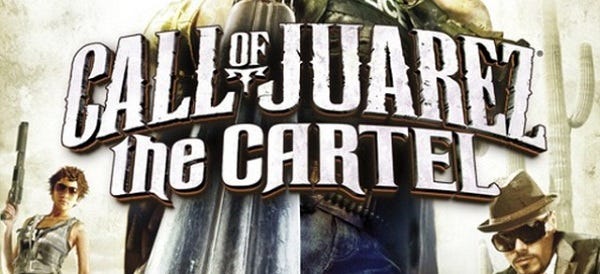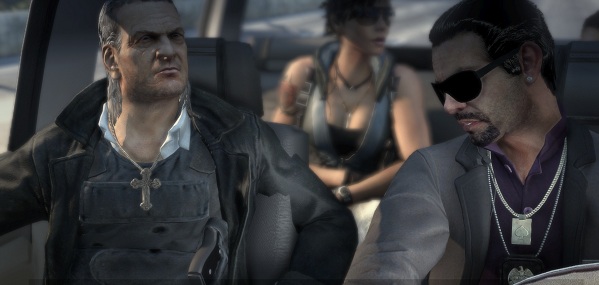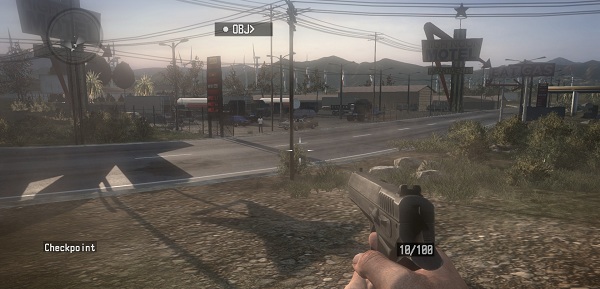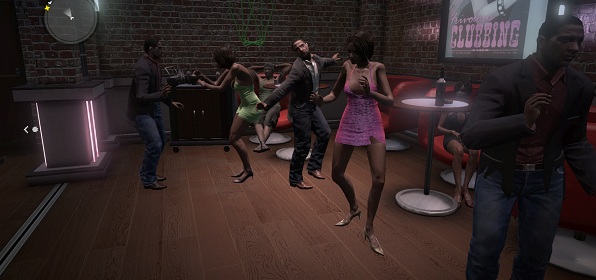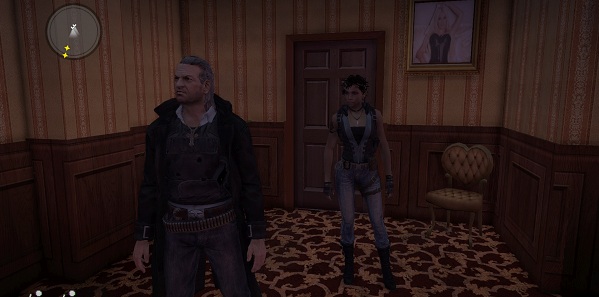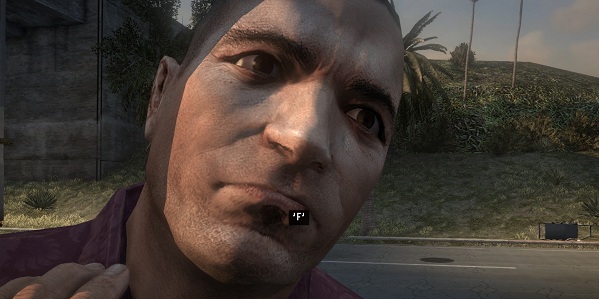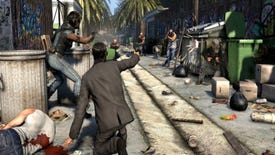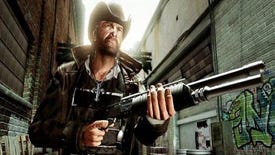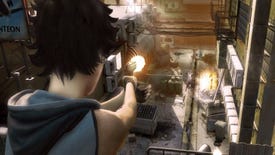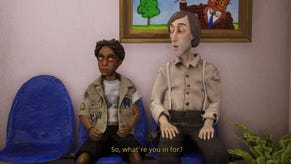Wot I Think: Call of Juarez: The Cartel
Call of Juarez: The Cartel moves the series into a modern setting and fills it with a cast of foul-mouthed gangsters and drug dealers. There are still guns though, and sometimes people say 'outlaw'. I was sceptical about the move but willing to give it a shot. Then Ubisoft delayed the PC release. Maybe they were doing us a favour? After playing the game from its bloody beginning to its bloody end, I am fully equipped to tell you Wot I Think.
The Wild West is one of the great American myths. Based on historical fact but steeped in legend and populated by archetypes, the frontier of the imagination is a rich environment. Lots of people grow up wanting to experience it, dispensing justice with a trusty revolver and being the grizzled yet noble bastion of law in a brutal world. Forget all that though. It’s time to explore another American myth; the war on drugs. It’s definitely worthy of exploration, but not necessarily in an FPS. And how many people grew up wanting to be a corrupt DEA agent with massive gambling debts who is half-heartedly trying to prevent a drug cartel from instigating a US invasion of Mexico?
But that’s one of your choices here and, to me, it was the most appealing. There’s a choice of three characters: Ben, a hard-assed relation of Reverend Ray McCall of the earlier titles; Kim, a streetwise FBI agent whose brother is in a gang; and Eddie, the gambling addict DEA fellow. Ben scares me because he’s supposed to be tough so he is almost constantly sneering. And his eyes roll back into his head whenever he’s angry, which is always.
During the early levels, it’s hard to move past the change in setting. Not because of the game’s title. I have no problem with ignoring that and concentrating on ‘The Cartel’. But the game won’t let you forget that it’s not just 'The Cartel' and its attempts to link itself to its predecessors hurt it.
The idea is that the three playable characters are badass lawmen (and one lawlady) fighting in the new frontier country. The crime-ridden streets of Los Angeles and the lawless Mexican border. There’s potential to that concept but it simply doesn’t work here. As the plot develops, a stronger connection is thrown up to the previous games and it leads to a nice change of environment, but it’s quickly discarded again and feels like an odd red herring. Other than that, there’s the fact that Ben dresses like a cowboy but that just makes him look anachronistic and silly, particularly when he’s supposed to be undercover. That's really something that happens. Ben pretends to be a sex therapist while wearing a cowboy hat, a bulletproof vest and with enough ammo to destroy an army strapped around his torso. Despite the attempts to flesh out the characters in overlong, overused cutscenes and dialogue sequences, they’re just swearmachines with guns.
The swearing deserves comment. The Cartel is that game, the one that uses swear words like punctuation and where everyone is accused of taking their Oedipus complex way too far on a regular basis. It’s not even imaginative or realistic swearing. Sometimes it feels like an algorithm has inserted foul language into every exchange, but without checking to see if that language makes sense in context. At one point, grizzled Vietnam veteran Ben shouted out, “These assholes are starting to chap my ass”. As well as conjuring up an improbable yet alarming image, it just sounds odd. It made me realise that I may well be playing an absurdist comedy and I just hadn’t been told. What would be next? “These cocksuckers are really chafing my cock”?
I understood what Ben meant though. He was angry and upset because people were shooting him. It didn’t matter that he was being shot because he couldn’t die but it was still annoying. The reason he couldn’t die is that I was playing in single player, with Ben and FBI lady Kim controlled by the computer, while I took the role of Eddie Guerra of the DEA. The AI characters are no help whatsoever. They rarely get involved in fights, preferring to hide behind cover even though they are invincible. I tested that by throwing grenades at them. They shout obscenities and jump up and down on the spot, presumably to try and put out the flames, but they don’t die or retaliate.
As well as being useless, they’re annoying. They shout out the same phrases over and over again, particularly “You don’t have to do this on your own!”, while refusing to get out from behind the wheelie bin they’re cowering behind and return fire. They even occasionally say things like “To the left!” when enemies are coming from the right. That’s not a joke, it actually happens a lot. By the end of the game I was convinced that Kim’s character was designed not to know the difference between left and right. I wanted to sit her down and ask her if she struggled remembering which was which. I would have tried to help, but she would probably have said “Stop fucking my directions, homie, I meant YOUR fucking right.” Maybe she was deliberately trying to confuse me. Messing with my head. You see, that’s all part of the plot as well. I may hate all of these characters, but they also hate each other. And probably themselves.
They all work for different law enforcement agencies and there is no love lost between them. It’s like the army and the navy breaking into a fight at a dance hall in 1943, but worse. And with more swearing. The rivalry actually has gameplay implications, which is interesting. Each of the characters has a secret agenda which translates into items to collect, or individual tasks on certain levels. As Eddie, I was encouraged to find drug stashes to sell on so I could pay off my debts. If I managed to grab them without being noticed, I levelled up and could choose new guns at the start of the next level. Occasionally, my fence would call and ask me to locate something specific in the level, or a dealer I was secretly helping to control the streets would tell me to torch a rival’s sports car.
Unfortunately, none of this works very well when you’re playing single player, which I was. The AI just isn’t responsive enough. There were times, particularly on the later, larger levels, when I’d leave my partners behind only to turn a corner and find them waiting at the next checkpoint. The game can be played co-operatively with all three characters controlled by a human but I reckon the chances of finding three people willing to sit down and play this game together are quite slim. That’s a shame because the concept of having teamwork undermined by ulterior motives is a strong one. Even with other humans, I doubt this is the place for it to succeed though. There’s no variety in the placement of the items and the rewards aren’t worth having.
None of the above would matter if the actual environments were interesting and the gameplay were solid. Alas, neither of those things is true. Environments in the first half of the game are such exciting locales as nightclubs, strip joints, alleyways and car parks. There are moments that are technically impressive but a lot of the scenery is copied and pasted and there’s no room for exploration. Things pick up briefly in Mexico but only because what came before is so uninspired.
As if to rush the player through the tedious environments, there are constant checkpoints, which appear as ugly, pixelated grey dots. When you reach one, another appears so you always know where to go. It doesn’t make sense because they lead you to criminals who are hiding from you. The characters have long conversations about how it’s going to be a bitch to track down one cartel member, while floating dots lead them straight to his door. Which is just around the corner.
The constant handholding makes the already limited locations feel even more so and I thought the breadcrumb trails were the most annoying part of the game. And then, in a level set in fourteen thousand identical garages, the checkpoint marker suddenly left me. I was lost in a cookie cutter world where every room was identical to the last. I was there for fifteen minutes, but it felt like a lifetime. I never want to go back and I realised then that a permanent guide really is necessary when level design is this poor.
The actual shooting isn’t too bad. It’s not good either, but the fundamentals work. You point a gun at people and they die. Pleasingly, the enemies, even later on, aren’t bullet sponges. Headshots are satisfying to pull off and the guns feel at least a bit weighty. But regenerating health and poor AI make the actual firefights far too simplistic and, worse still, every part of the game that isn’t a firefight is worse still.
It all starts with a highway shootout. You press new game and there you are, in an on-rails segment that has the player shoot vans until they explode. The vans shoot back but I’m not sure it’s possible to die. It’s boring and made me feel like I’d somehow managed to skip the real opening. In a way I had, but that’s intentional, because the next few levels are a flashback, showing how the three protagonists ended up on that highway. Here’s an embarrassing admission. I’m still not sure. There are a few highway shootouts later on and I can’t for the life of me remember which one that beginning was a segment of. They’re all so similar. Riding shotgun is like a minigame that I never wanted to play. In fact, the whole game feels strangely like a collection of minigames.
There’s the standard gameplay. Running and shooting. It’s pretty much all corridor-based, even when you find yourself in a desert. Every so often you have to enter a room full of bad guys and the game decides that you and one of your buddies will take up positions on each side of the door and enter together. Slow motion kicks in and the enemies look briefly nonplussed as you shoot them all. They always look surprised when this happens, even though you’ve often been shooting and blowing things up in the room next door for the past five minutes.
The next minigame is called ‘running to glowing cover points’. Like the objective system, it’s more handholding. Rather than allowing you to pick your route across a bland room or blander carpark, the game will sometimes tell you to wait for covering fire. So you look for a glowing silhouette of your character and then wait for a message telling you to run, and you run. Then you crouch, look for the next silhouette, wait for the signal and run again. It’s terrible because it makes it clear that the cover fire is essentially just a timer. There’s no threat, just a boring period of waiting.
The final minigame is driving. Every vehicle controls like a skateboard and you’re either following someone or simply moving to a new location. IF you deviate even slightly from the correct path, you fail the mission. I missed a turning once (they are planted every few metres) and after around three seconds was told I had left the mission area. Back to my last save I went. It made me wonder though; what had happened? Had I inadvertently fled in terror or was I simply baked on all the drugs I was stealing? Another time I tried to avoid hitting a large chainlink fence, only to realise I was supposed to drive straight through it when Eddie whooped, “WOOHOO, that’s one way to make an entrance!” This was followed swiftly by Kim shrieking, “Shit, we’re under fire, man!” We weren’t, of course. I had parked sedately at the side of a quiet street.
Cutscenes and dialogue are often like this. They trigger too early or just don’t fit very well with the events actually occurring on screen. On the very first level, one of numerous unnecessary cutscenes showed the characters looking at a field of marijuana that they had been sent to find. Strangely, I hadn’t actually found it yet. When I regained control, it was nowhere to be seen, even though I had just seen them standing right by it.
The Old West is a wonderful setting. It’s impossible to be a media consumer without instantly recognising its basic elements and although its popularity has waned since the glory days, there are plenty of revivals and reimaginings. The Cartel riffs on The Wire and The Shield, among others, but it doesn’t have their intelligence. I was surprised by how much effort it makes to tell a proper story, with a dash of political commentary, and references to Vietnam and Iraq. I hadn't expected it, but despite all the ass chapping and over the top shooting, the game does take itself seriously. That made me feel worse that it fell so short.
